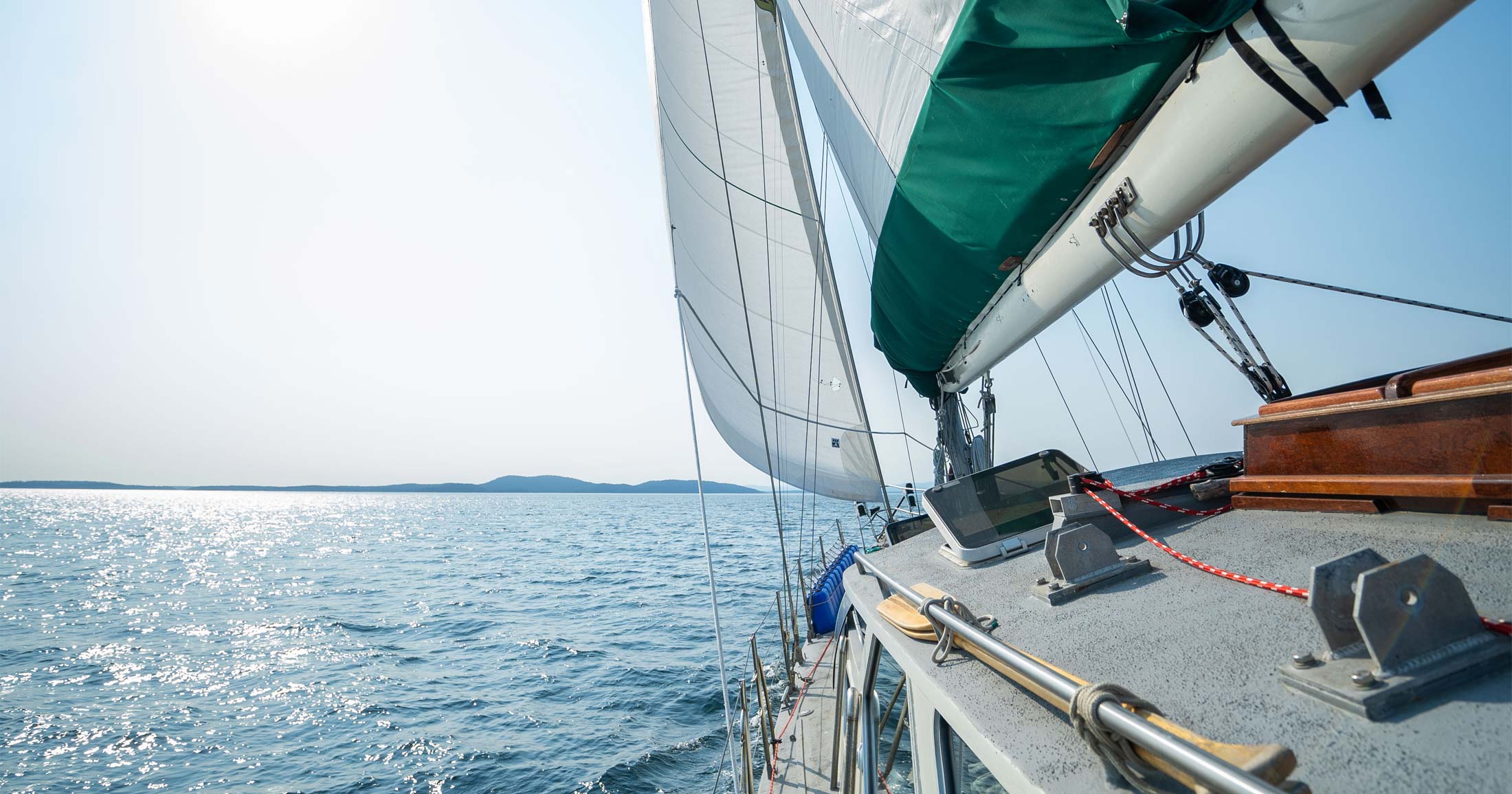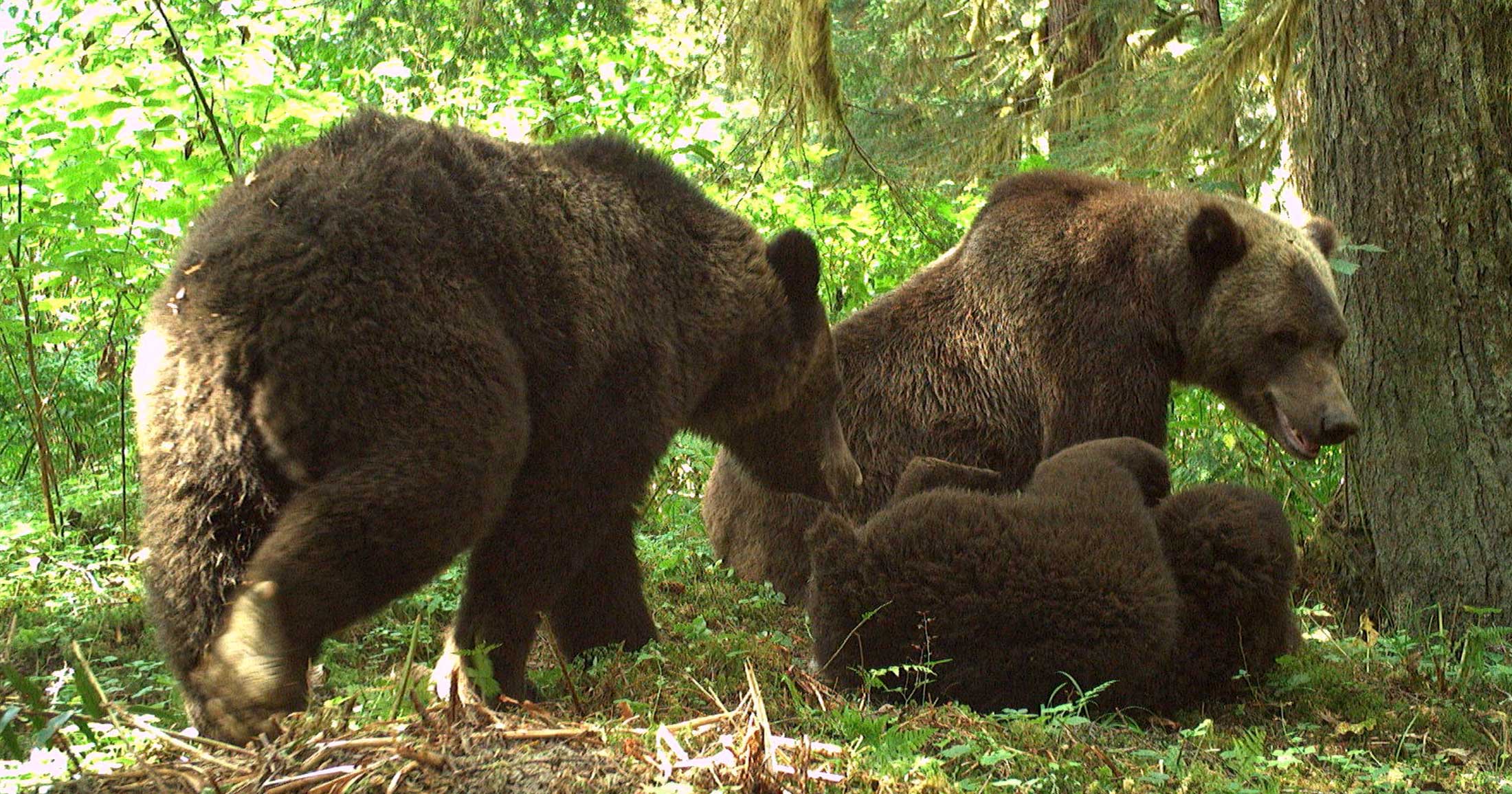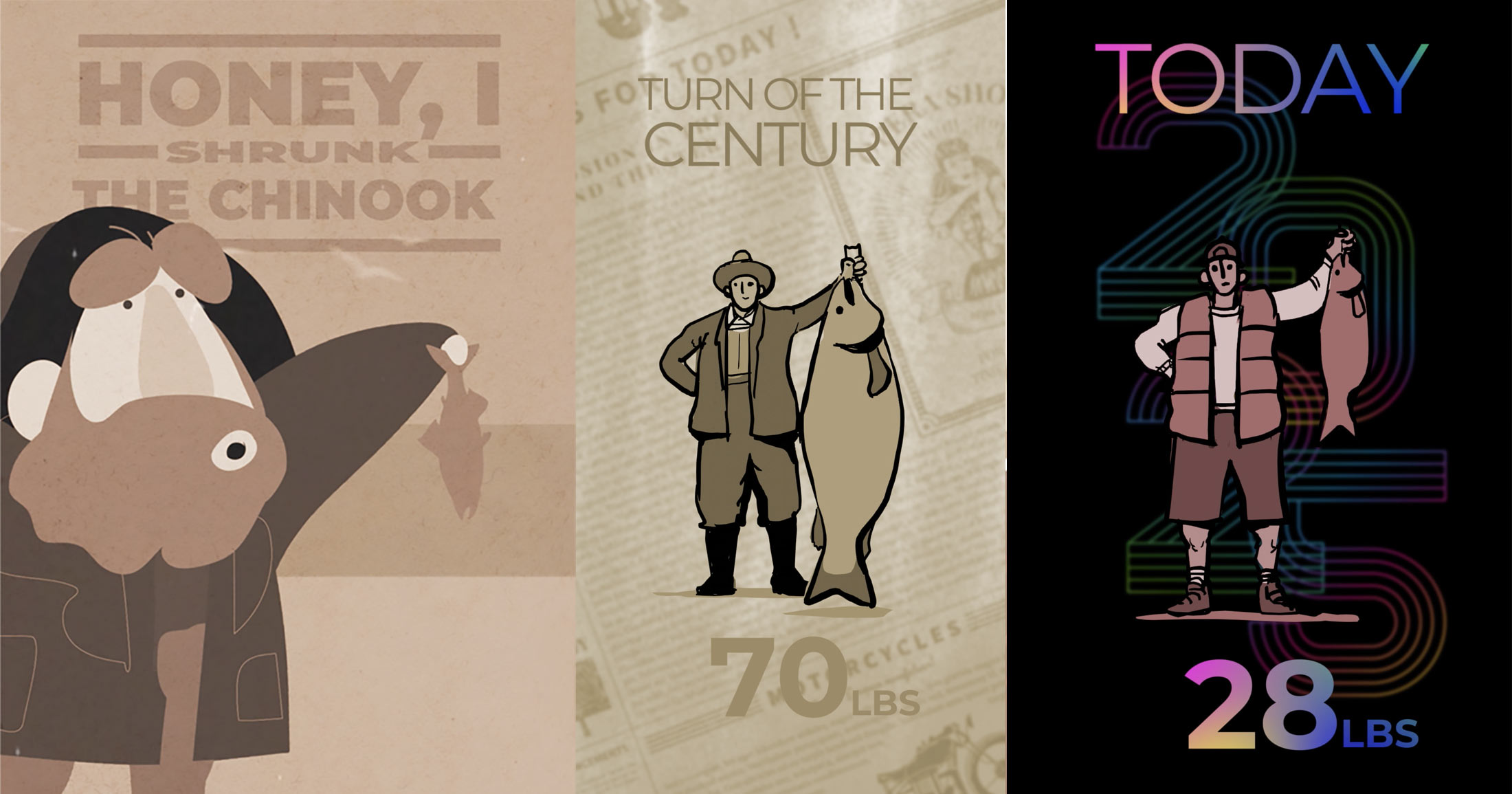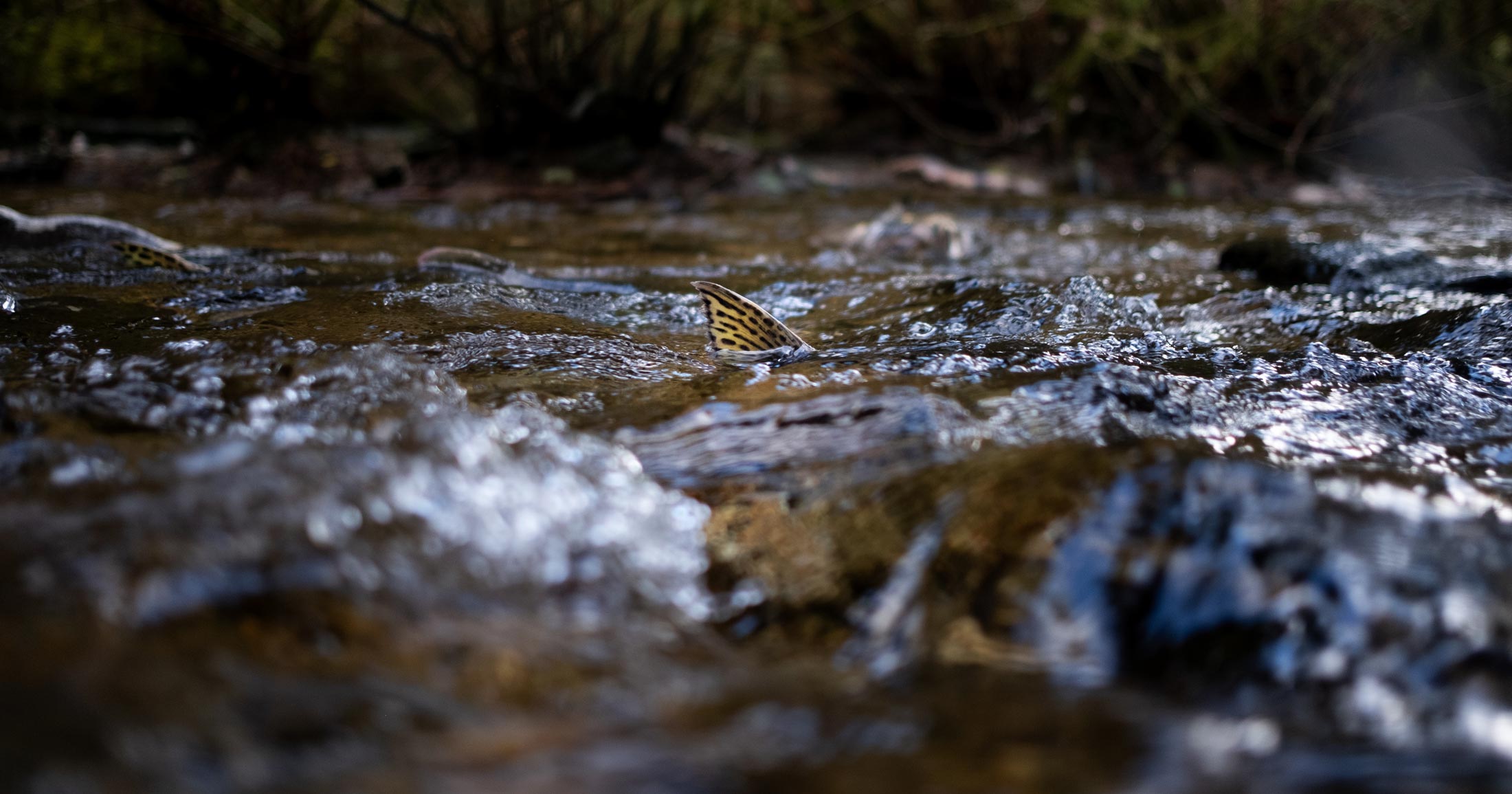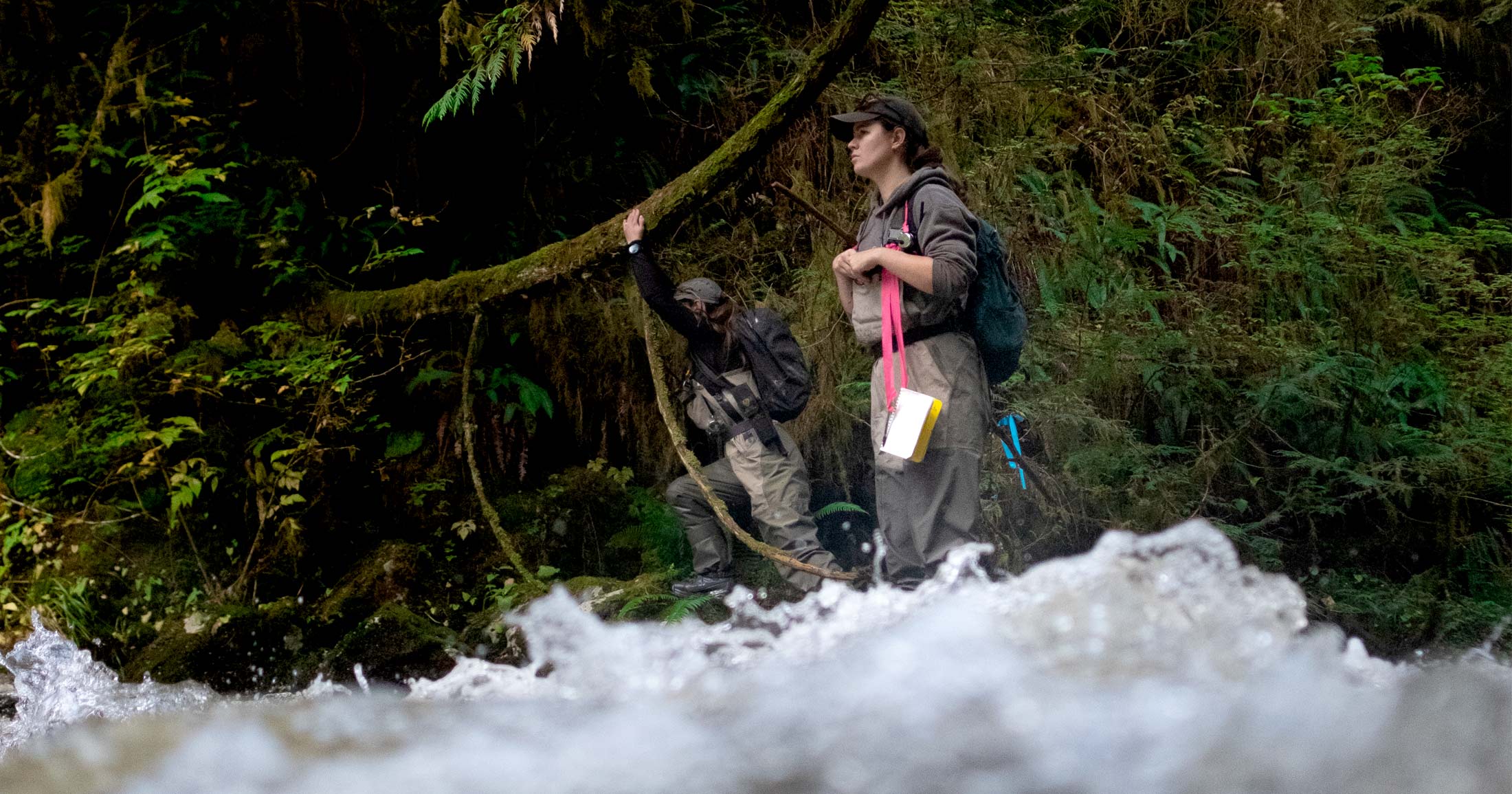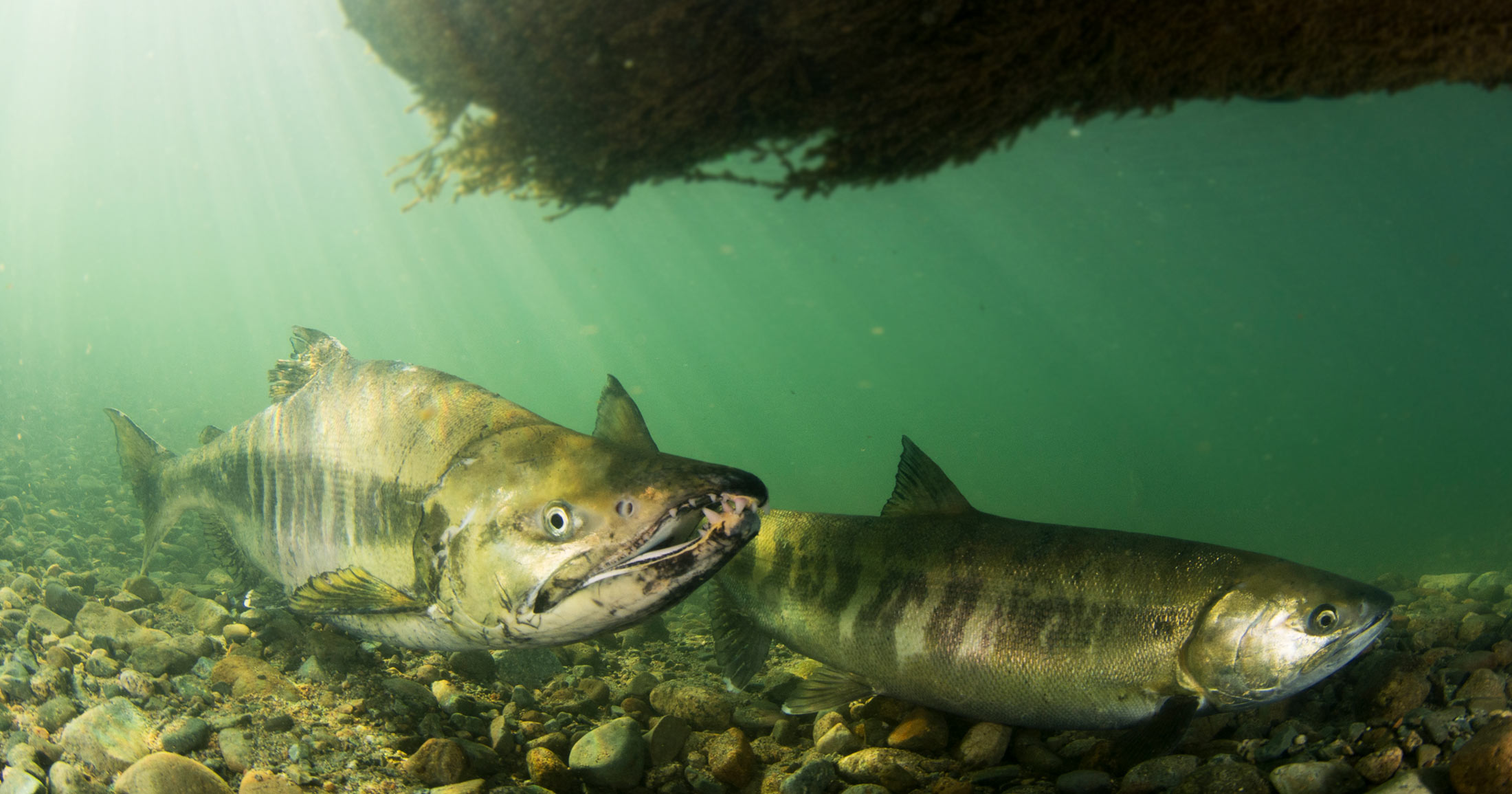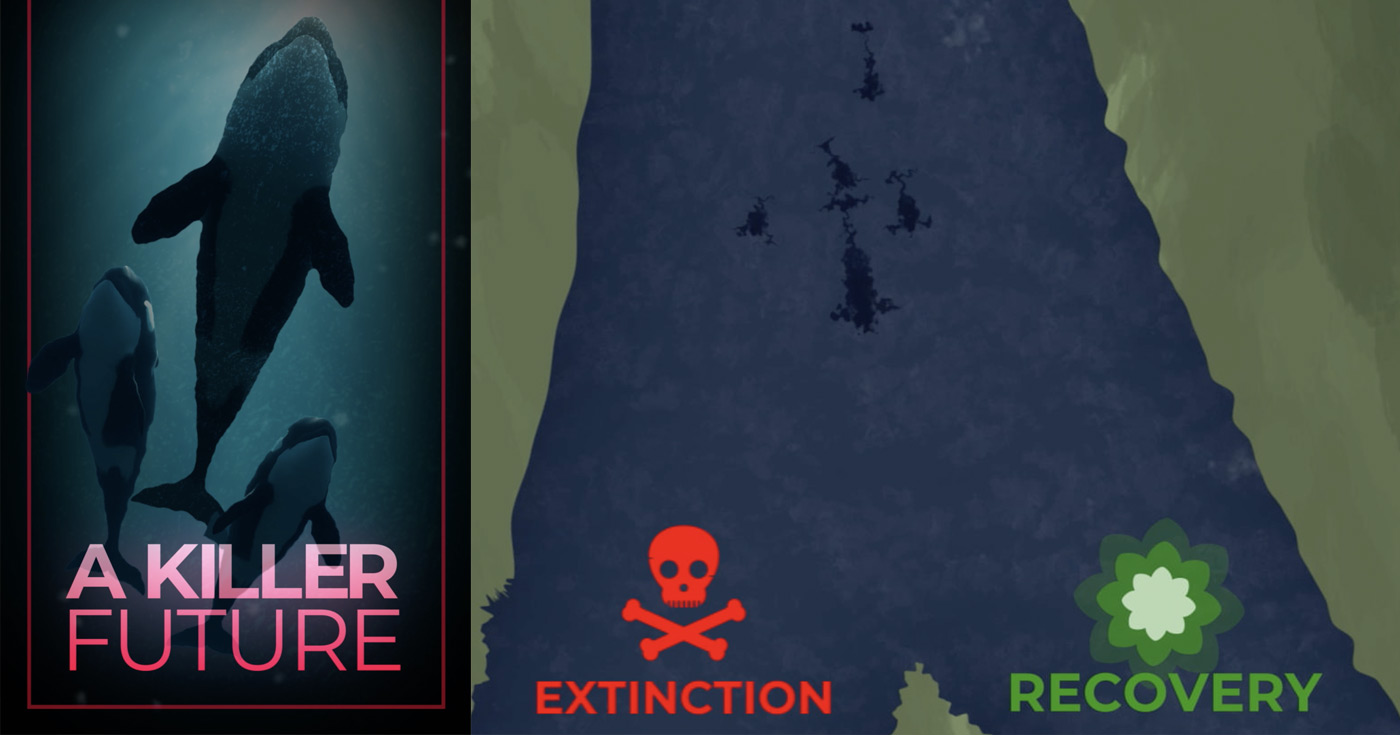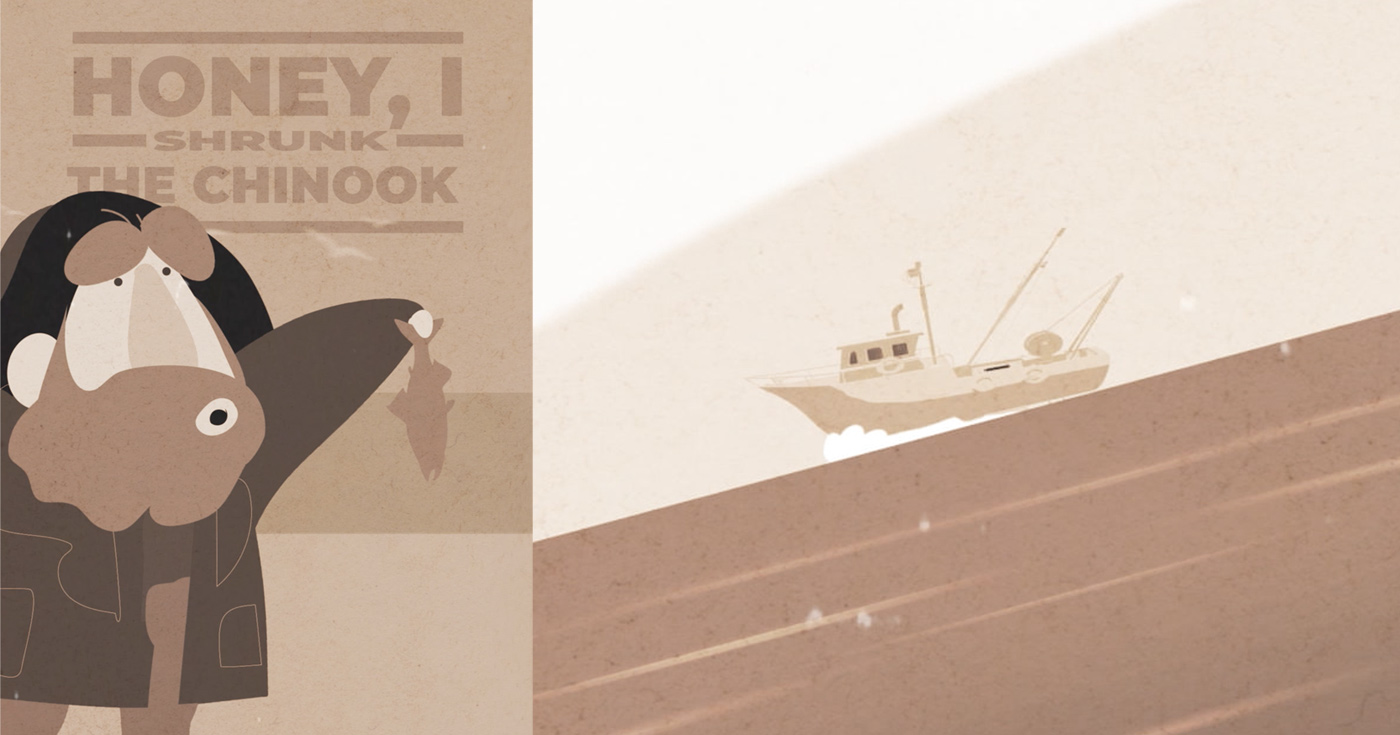Supporting youth through experiential learning in nature
Nine youth from the Red Fox Healthy Living Society joined us aboard Achiever.
Raincoast’s Salish Sea Emerging Stewards is an environmental education program that delivers immersive, hands-on learning on-land and at-sea, and we recently successfully completed another sailing expedition for nine Indigenous, BIPOC, racialized, and at-risk youth. Spending five days living together aboard the SV Achiever, the group got to explore various sites in the Salish Sea, observe and learn about local species and habitats, get active outdoors, while fully immersing themselves in nature. We partnered once again with the Red Fox Healthy Living Society, a non-profit that offers programs promoting active living and skill development to youth facing barriers, to deliver this transformative opportunity.
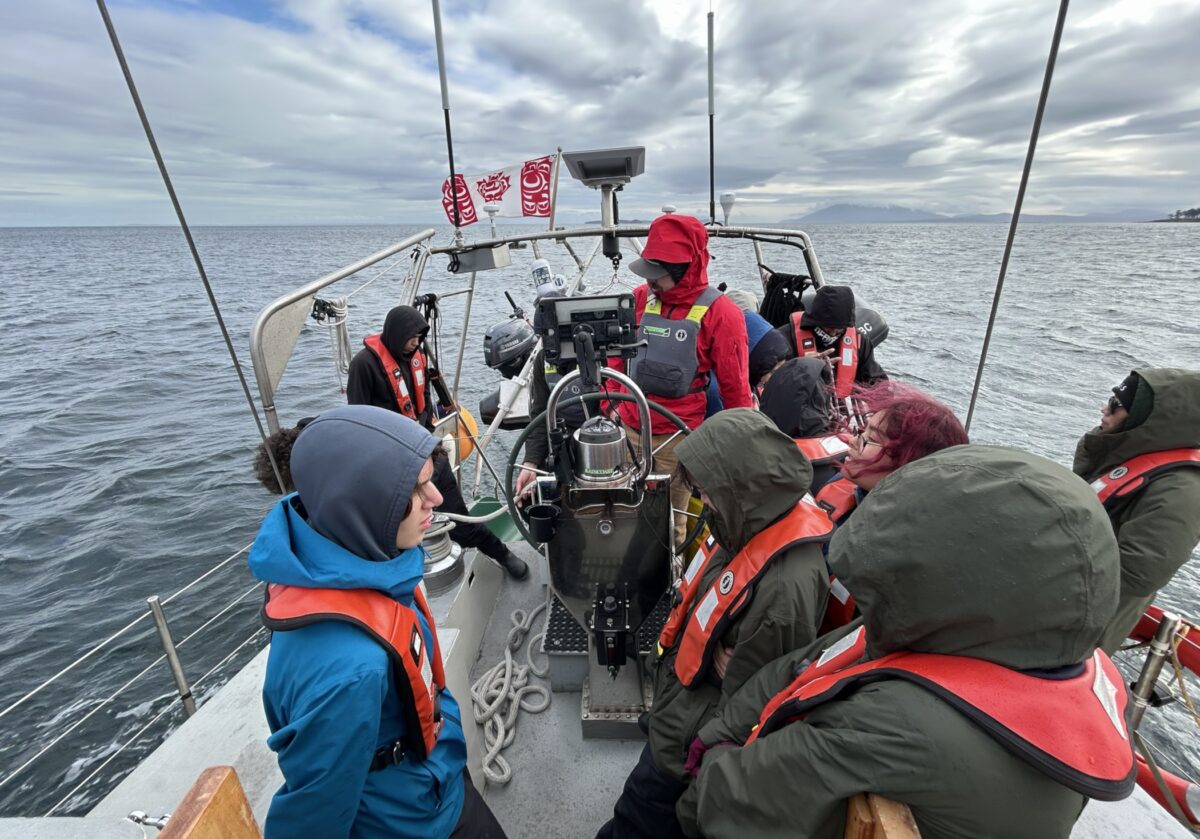
Working together to support youth
The Red Fox Healthy Living Society is a Greater Vancouver-based nonprofit that helps Indigenous, inner-city and at-risk children and youth reach their full potential by offering recreation, culture, and skill development programs. Their Seed Generation project engages youth ages 12-18 to help develop life and job skills, lead community volunteer projects, and promote active living. The program also provides opportunities to explore the Lower Mainland and beyond through recreational activities, and is therefore a perfect fit to participate in Salish Sea Emerging Stewards programming.
In the summer of 2025, Raincoast joined Seed Generation in Vancouver to lead learning activities, including an ocean plastics and beach cleanup activity, and a forest walk and plant identification workshop. We were thrilled to be able to welcome nine of their youth participants ages 14-17 from across the Lower Mainland aboard Achiever for a more intensive learning and exploration experience.
“I feel grateful to be able to experience this program. I love the water and being able to be part of this program, I feel like I continue to deepen my relationship with the ocean and remind me how we are all connected. To care for Mother Earth is to care for ourselves and one another. “ – Participant Kaydenze.
Nature-based learning
Education Coordinator, Pascale Campagna-Slater, Captain Mat Janeway, and Mate Jesse Saunders, welcomed the group aboard Achiever. The five day trip was spent hopping from island to island seeking opportunities to explore different habitats, observe and identify as many species as possible, and discuss conservation issues. With some classic October weather – and wind – in the forecast, we made the most of the sunshine, while bundling up on wetter, cooler days.
We cruised through Haro Strait towards Mandarte Island to observe the pelagic and double-crested cormorants that make this protected island their home. The first-day excitement was only heightened when we encountered two Bigg’s killer whales off Moresby Island. From the bow of Achiever, we watched T49A2 and T65A5 as they swam south, before continuing on our way to Russell Island, where we discussed the native and invasive species encountered, and took in a beautiful sunset.
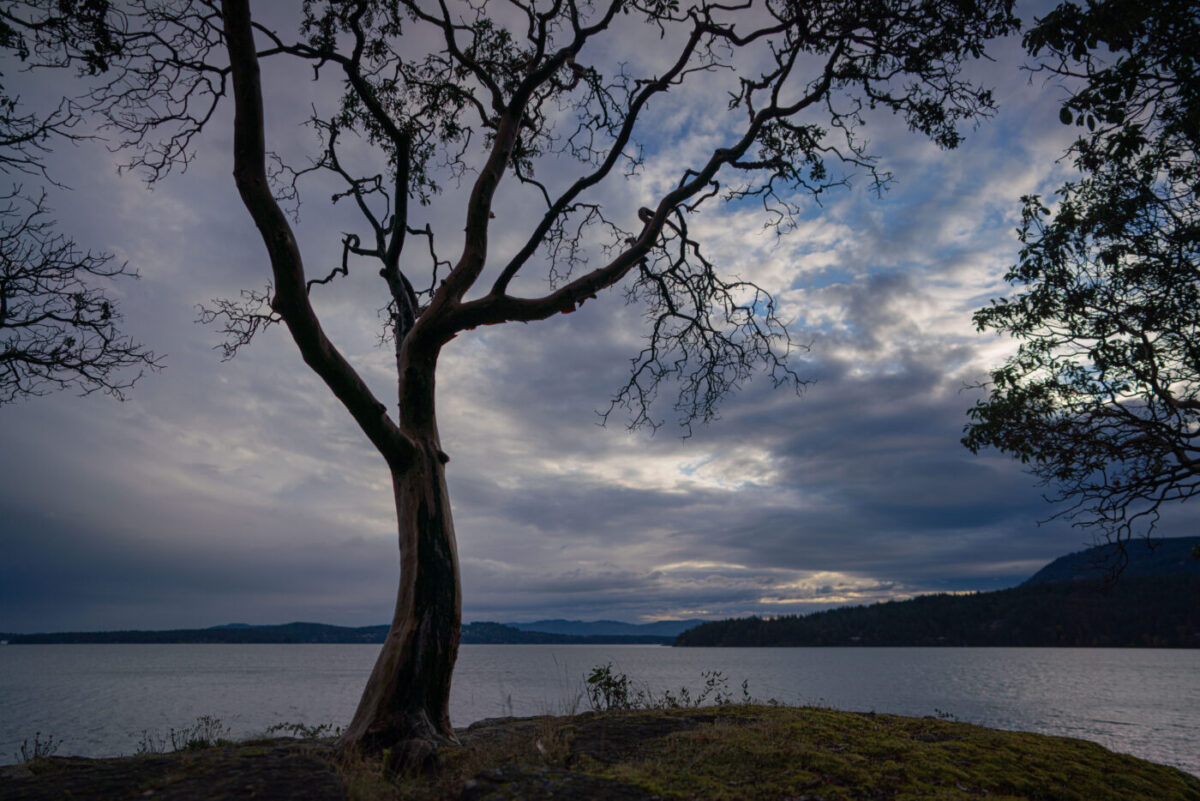
We took advantage of an early morning low tide, the lowest daytime tide of our trip, to head to Portland Island and explore the rocky intertidal zone of Arbutus Point, where we observed marine invertebrates such as aggregating anemones, ochre sea stars, and lots of shore crabs. Our hikes around Narvaez Bay and up to Monarch Head on Saturna Island allowed us to observe and discuss various local tree species, including the Garry oak and its associated ecosystem.
“This program reminded me of my purpose, intention and passion for protecting the environment. It was nice to be around other people who also are passionate about protecting Mother Earth, and for hands-on opportunities for conservation work that we can be a part of on a local level. Seeing all these beautiful places and all the sea life has re-inspired me on the importance of protecting these sacred places, waterways, and animals.” – Participant Kain.
We also sought to teach youth about navigation and sailing, a unique opportunity. Many of the youth got a chance to take the helm and steer, under the guidance of Captain Mat. After a lesson on sailing theory, we spent an afternoon sailing in the Strait of Georgia. The youth got involved in all aspects, from hoisting the main sail, to grinding the winches, and driving the boat. We concluded each day showing the group paper charts, discussing our day’s journey and planning the next day’s itinerary.
“I learned how to live on a boat and how to take care of a boat. I was scared to come but I am so grateful to actually have gone on this journey and face my fears. This felt like a once in a lifetime opportunity and I’m so happy to have been supported throughout this trip and I would definitely want to spend more time on the water and travelling to these beautiful places that we live in” – Participant Uri.
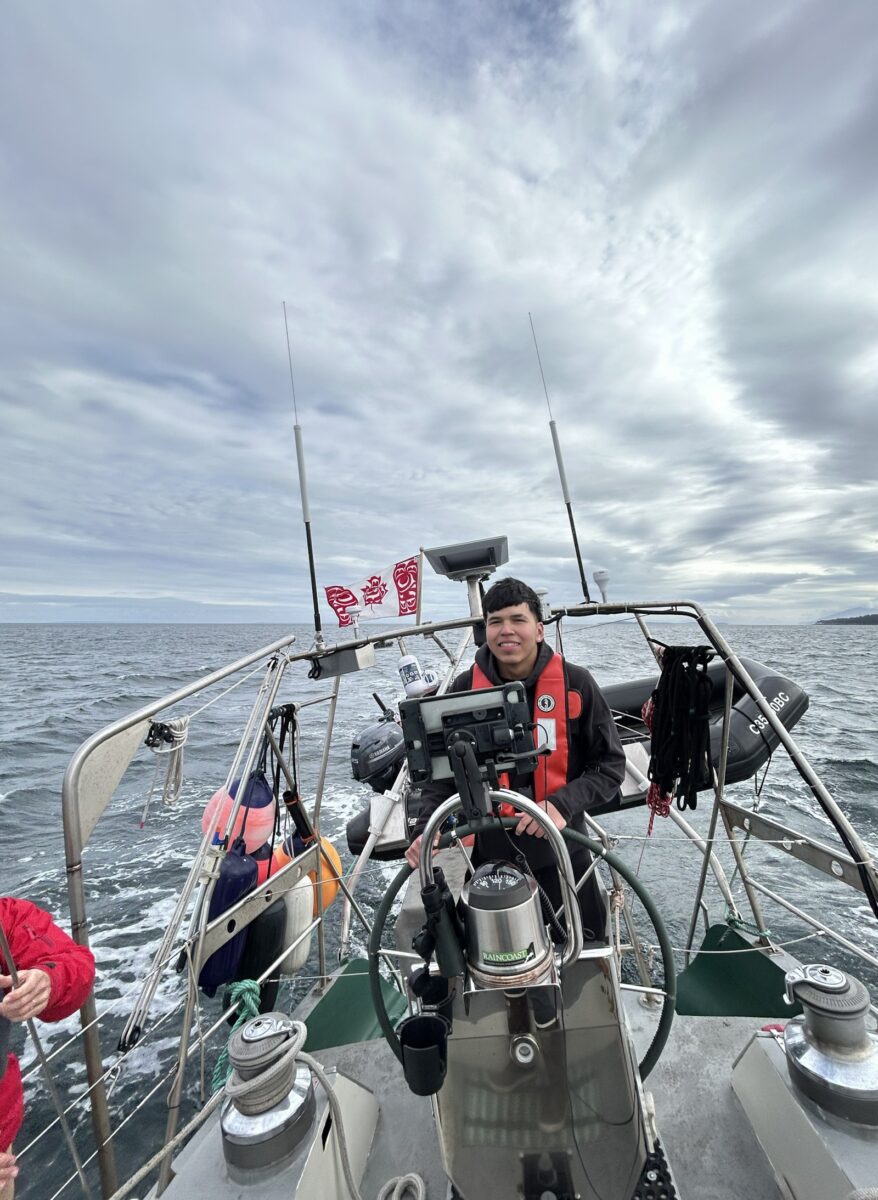
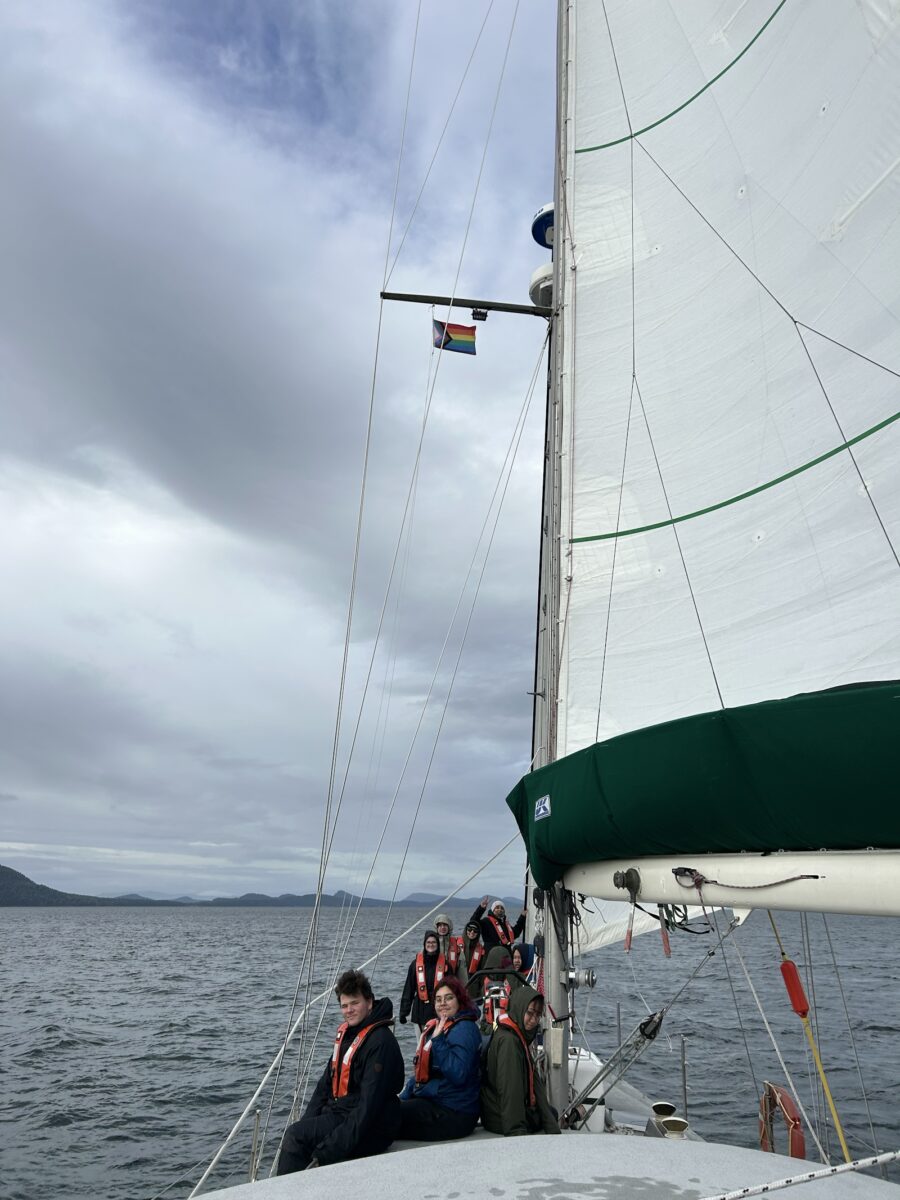
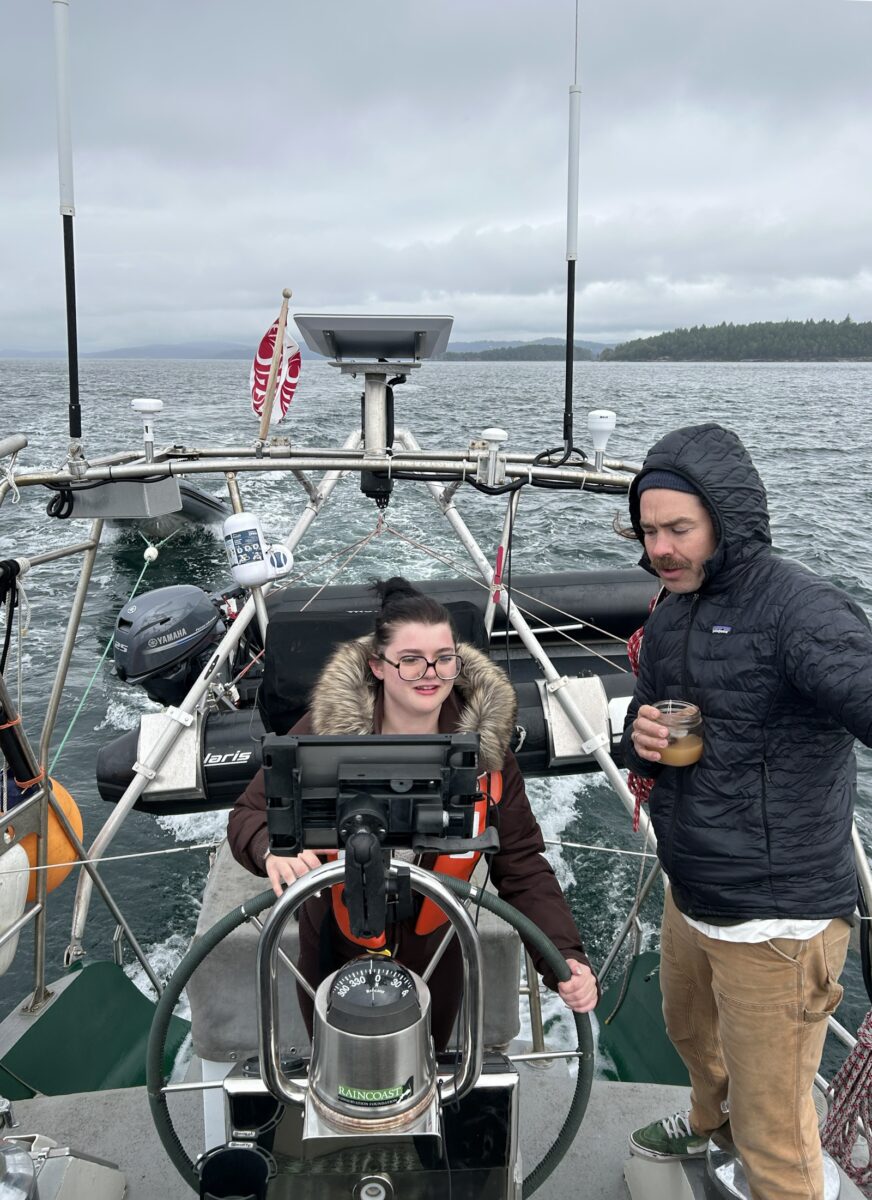
With many youth facing personal challenges, we found lots of opportunities for youth to unwind, disconnect, and bond with each other. With some free time at James Bay on Prevost Island, we played a game of camouflage, hiding amongst the shrubs and apple trees. We organized an art challenge, where the group split up to create art displays using driftwood and other forest debris. With judging involved from the crew, the youth took it seriously and demonstrated their creativity. Evenings on the boat were spent chatting and playing games to unwind from the day’s excitement.
“I learned a lot of terminology about operating a sailboat. I learned hands-on how to sail a boat and the day-to-day operations of the inner workings of a sailboat. This experience makes me feel like I need to protect the environment more. Being able to travel to all these beautiful places shows me what a non disturbed earth looks like and what the impact humans have made and how we can change our imprints on the land and in the ocean” – Participant Tasos.
A transformative experience
The Salish Sea Emerging Stewards engages youth who face barriers and are from communities often underrepresented in outdoor and environmental spaces. Through immersive experiences in nature and hands-on learning activities, we aim to inspire curiosity, stewardship, and lifelong connections to the natural world. For participants like the Seed Generation youth, this is a rare but transformative experience, and we look forward to seeing where journeys take them next.
“When youth are given a safe space where they feel like they can relax their nervous system, to be able to be their authentic self, to learn with humility and care and to be able to explore curiosity with play and laughter in a sense of community while also with spaciousness to do their own thing, youth are able to thrive. This Achiever‘s trip really helped deepen my understanding and commitment to the importance there is for us to continue to foster and advocate for safe, fun, and experiential learning spaces for youth to explore themselves and help support them in their journeys of deepening their understandings and responsibilities of being in relation and community kinship.” – Melissa West Morrison, Cultural Youth Programs Coordinator with the Red Fox Healthy Living Society.
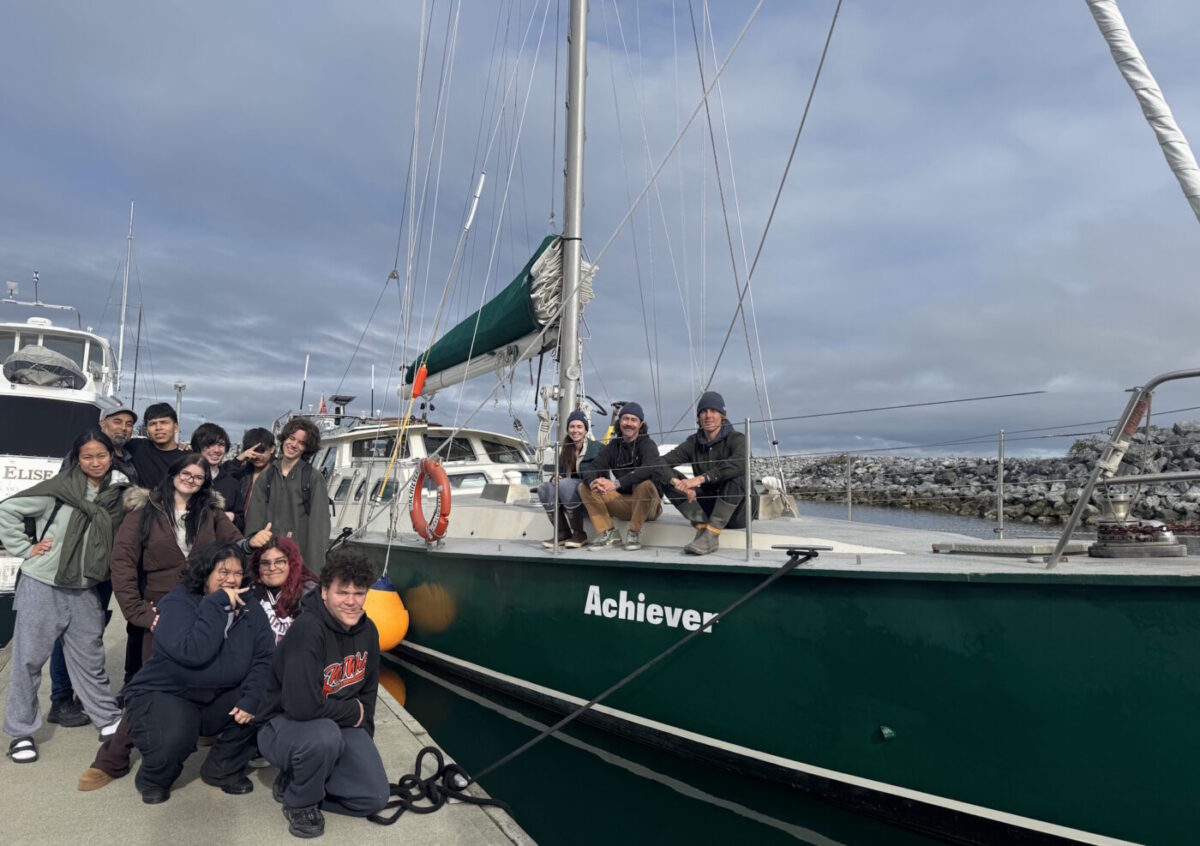
Our supporters
Raincoast would like to thank the sponsors and supporters of the Salish Sea Emerging Stewards program who make these opportunities possible.
DP World
First West Foundation
Wildlife Habitat Canada
BC Conservation and Biodiversity Awards
McLean Foundation
Hamber Foundation
Barraclough Foundation
Fluor
TD Friends of the Environment
Telus Friendly Future Foundation

